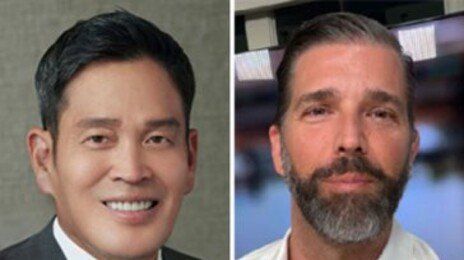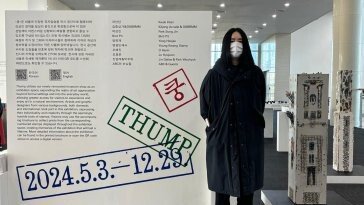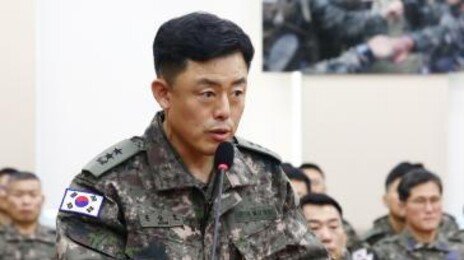한국, 변질된 개인주의에 갇힌 서양과 대조
성숙한 사회는 위기 때 민주적 단결력 발휘
동서양 장점 서로 배우는 평등관계로 가야

신종 코로나바이러스 감염증(코로나19)은 세계 각국의 시스템과 의지를 시험대에 올리고 있다. 애석하게도 서구 국가들은 대체로 이 시험에서 고전 중이다. 영국 출신인 나에게는 딱히 놀랄 일도 아니다. 이런 위기 상황에서 정부와 국민의 초기 대응이 어떨지 짐작할 수 있었기 때문이다.
이제 개선되고 있기는 하지만 영국은 초기에 미적거린 대가를 이미 너무 크게 치렀다. 10일 오전 기준 영국의 사망자는 8000명에 이르고 있다. 어머니는 지난 2주 동안 집에 갇혀 지내셨다. 어머니는 내가 전화를 걸 때마다 우신다. 지금 영국에 있는 사람들 모두 비슷한 일을 겪고 있다. 이런 조치가 정신 건강과 경제에 미칠 영향은 엄청날 것이다.
한국 친구들은 서구 사회의 대응을 보며 ‘이것보다는 잘할 줄 알았어’라고 말한다. 영국 언론에도 한국의 대응을 칭찬하는 내용이 가득하다. 이러한 상황이 바로 오늘 이야기할 주제를 떠오르게 했다. 2020년은 서양이 스스로와 동양을 보는 관점을 바꾸는 전환점이 될 것이라는 점이다. 2020년은 또 한국인에게도 서구 국가들에 대한 ‘사대주의’에서 벗어나 스스로를 보는 관점을 바꿔줄 전환점이 될 것이다.
비유하자면 이런 경향은 한국을 ‘공부 잘하는 학생’ 정도로 여기며 생색내는 많은 서양인들에게서도 나타난다. 특히 한국과 미국이 이견을 보이는 사안의 경우 미국의 소위 ‘한국통’들은 한국인들의 이견을 단순히 견해차가 아닌 ‘반미주의’나 ‘동맹의 은혜를 모르는 배은망덕함’쯤으로 여기곤 한다.
하지만 한국은 학생으로 따지면 이미 여러 방면에서 ‘청출어람’을 이뤘다고 할 수 있다. 현재 한국의 사회계약 개념은 영국이 한때 보장했다가 이후 대부분 잃었다가 최근 다시 구축하려고 노력 중인 수준을 유지하고 있다. 이는 미국이 단 한 번도 가지지 못한 것이다.
이 사회계약의 기본 구조는 국가가 일정 수준의 보호를 제공하면 개개인 역시 그 대가로 국가에 일정 수준의 신뢰를 주는 것이다. 이러한 사회계약은 홉스가 말한 ‘리바이어던’의 형태가 아니다. 국가가 국민의 신뢰를 남용하지 못하게 억제할 수 있을 만큼 충분히 민주적이고 투명한 계약이기 때문이다.
오늘날 우리는 종종 ‘전체주의’ 대 ‘혼돈의 민주주의’라는 다소 위험하고 거짓된 이분법적 상황에 놓이기도 한다. 최근 봉쇄령으로 집 밖에 나가지 못하고 있는 미국에 사는 친구는 농반진반으로 ‘(시국을 보면) 트럼프보다는 차라리 시진핑의 통치를 받는 게 나을 것 같다’고 하기도 했다. 하지만 독재 역시 혼란스럽기는 마찬가지다. 부패나 지도자의 독단, 무엇이 진실인지 알 수 없는 상황 같은 체제 고유의 특성 탓이다.
다만 무엇보다 중요한 것은 우리가 전체주의와 민주주의 사이에서 양자택일의 선택을 할 필요는 없다는 것을 깨달아야 한다는 것이다. 성숙한 사회는 위기 속에서도 민주적이지만 동시에 단결력을 발휘한다. 바로 이게 내가 태어나 처음으로 서양 친구들이 ‘우리도 한국처럼 해야 해’ ‘우리도 대만처럼 해야 해’라고 말하는 것을 듣게 된 이유다.
우리는 모두 스스로에 대한 자신감을 유지한 채 서로의 모범 사례를 차용해야 한다. 그간 동서양을 막론하고 ‘선진국’이라는 관념 속 깊게 내재된 서양 우월주의는 이러한 협력의 장애물이 됐다. 좋은 사례와 나쁜 사례는 있을 수 있어도 좋은 국가와 나쁜 국가는 있을 수 없는 법이다.
예컨대 코로나19에서 드러난 미국의 후진적 의료보험과 공중 보건 문제는 미국이 한국에서 배울 게 있다는 것을 보여준다. 동시에 ‘n번방’ 사건을 통해서는 한국이 미국의 더 엄격한 성범죄자 처벌 제도에서 배울 점이 있다는 것을 알 수 있다.
2020년, 세상은 조금은 더 두려운 곳이 되었다. 하지만 이 어려운 시기는 의도치 않게 우리에게 좀 더 평등한 동서양의 관계를 생각해볼 기회를 주고 있다.
COVID-19 is putting the system and spirit of every country to the test. Tragically, western countries have largely been failing. Being from the UK, this isn’t necessarily a surprise to me, since I could have guessed what the initial reaction to such a crisis by government and the public would be.
We’re improving now, but we’ve already paid too heavy a price for our earlier dithering. We have 5000 dead, and by the time you read this, it may be double. Later today I will call my mother, who has spent the past two weeks shut in her house. Every time I talk to her, she cries. It’s a similar story for everyone in the UK now; the effect on mental health and the economy are going to be colossal.
Korean friends now look at the west and say, ‘we expected better of you’. And naturally, the media in my country is now full of praise for the Korean response. Which brings me to my main point: 2020 is going to be a turning point in how the west sees itself, and how it sees East Asia. It should also be a turning point for how Korea sees itself, and a chance to start breaking free of 사대주의 towards western countries.
There are many, many people in Korea who have internalised the idea of western superiority. The best education is an American one, and a ‘global standard’ always a western one. If a Korean celebrity receives recognition in the west, the level of joy shown by the Korean media is embarrassingly high. This overall tendency has been mirrored by western commentators, who may see Korea as, patronisingly, a high-achieving student. In the event of disagreement with the US, it isn’t simply a difference of opinion, but rather of ‘anti-Americanism’ and ingratitude.
But if Korea is a student, maybe it has already overtaken its teacher in plenty of respects. The social contract Korea has at present is one that my country had, then mostly lost, and is now trying to reconstruct. It’s one that the US has never had. The state provides a baseline level of protection (including healthcare) and competence, and in return, the people put a baseline level of trust in it. It isn’t Hobbes’ Leviathan, because it is also democratic and transparent enough to discourage the abuse of that trust.
There has long been a suspicion of government in the English speaking world, be it left or right, accompanied by a ‘you can’t tell me what to do’ mentality. There has also emerged since the 1980s a lack of belief that such a thing as society even exists – a corruption of the individualism that was one of our strongest achievements. In a coming era of environmental disasters and rapidly globalised contagious diseases, we will need to fix that or suffer.
These days were are often exposed to the dangerous, false dichotomy of authoritarianism versus ‘chaotic’ democracy. A friend locked down in the US recently half-jokingly told me he’d rather be ruled by Xi Jinping than Donald Trump. But dictatorship is chaotic too, because corruption, arbitrariness and an inability to know what is true or false are inherent to it. Most importantly though, we need to realise that we don’t have to make a black or white choice between the two. A mature society is democratic but also sticks together in a crisis. This is why, for the very first time, I hear western friends saying things like, ‘we should be more like Korea’ or ‘we should be more like Taiwan’.
Really though, we should all be more like each other – or rather take the best practices from each other - whilst having confidence in ourselves. The notion of Western superiority, internalised by both west and east, and underpinned by the notion of the ‘advanced' nation’, has stopped us from doing that. There are simply good and bad practices, rather than good and bad countries (at risk of going off-topic, let’s have public health done Korean style, and punishment of sex offenders done American style, for instance). The world may seem a scarier place in 2020, but we can at least envision a more equal relationship between east and west as a by-product of these difficult times.
We’re improving now, but we’ve already paid too heavy a price for our earlier dithering. We have 5000 dead, and by the time you read this, it may be double. Later today I will call my mother, who has spent the past two weeks shut in her house. Every time I talk to her, she cries. It’s a similar story for everyone in the UK now; the effect on mental health and the economy are going to be colossal.
Korean friends now look at the west and say, ‘we expected better of you’. And naturally, the media in my country is now full of praise for the Korean response. Which brings me to my main point: 2020 is going to be a turning point in how the west sees itself, and how it sees East Asia. It should also be a turning point for how Korea sees itself, and a chance to start breaking free of 사대주의 towards western countries.
There are many, many people in Korea who have internalised the idea of western superiority. The best education is an American one, and a ‘global standard’ always a western one. If a Korean celebrity receives recognition in the west, the level of joy shown by the Korean media is embarrassingly high. This overall tendency has been mirrored by western commentators, who may see Korea as, patronisingly, a high-achieving student. In the event of disagreement with the US, it isn’t simply a difference of opinion, but rather of ‘anti-Americanism’ and ingratitude.
But if Korea is a student, maybe it has already overtaken its teacher in plenty of respects. The social contract Korea has at present is one that my country had, then mostly lost, and is now trying to reconstruct. It’s one that the US has never had. The state provides a baseline level of protection (including healthcare) and competence, and in return, the people put a baseline level of trust in it. It isn’t Hobbes’ Leviathan, because it is also democratic and transparent enough to discourage the abuse of that trust.
There has long been a suspicion of government in the English speaking world, be it left or right, accompanied by a ‘you can’t tell me what to do’ mentality. There has also emerged since the 1980s a lack of belief that such a thing as society even exists – a corruption of the individualism that was one of our strongest achievements. In a coming era of environmental disasters and rapidly globalised contagious diseases, we will need to fix that or suffer.
These days were are often exposed to the dangerous, false dichotomy of authoritarianism versus ‘chaotic’ democracy. A friend locked down in the US recently half-jokingly told me he’d rather be ruled by Xi Jinping than Donald Trump. But dictatorship is chaotic too, because corruption, arbitrariness and an inability to know what is true or false are inherent to it. Most importantly though, we need to realise that we don’t have to make a black or white choice between the two. A mature society is democratic but also sticks together in a crisis. This is why, for the very first time, I hear western friends saying things like, ‘we should be more like Korea’ or ‘we should be more like Taiwan’.
Really though, we should all be more like each other – or rather take the best practices from each other - whilst having confidence in ourselves. The notion of Western superiority, internalised by both west and east, and underpinned by the notion of the ‘advanced' nation’, has stopped us from doing that. There are simply good and bad practices, rather than good and bad countries (at risk of going off-topic, let’s have public health done Korean style, and punishment of sex offenders done American style, for instance). The world may seem a scarier place in 2020, but we can at least envision a more equal relationship between east and west as a by-product of these difficult times.
다니엘 튜더 전 이코노미스트 한국 특파원·명상앱 ‘코끼리’ 대표
동아시론 >
구독
이런 구독물도 추천합니다!
-

이주의 PICK
구독
-

글로벌 현장을 가다
구독
-

고양이 눈
구독
-
- 좋아요
- 0개
-
- 슬퍼요
- 0개
-
- 화나요
- 0개
![‘모든 것을 바꾸라’는 메시지[동아 시론/최재붕]](https://dimg.donga.com/a/180/101/95/2/wps/NEWS/IMAGE/2020/04/15/100658025.1.jpg)



댓글 0